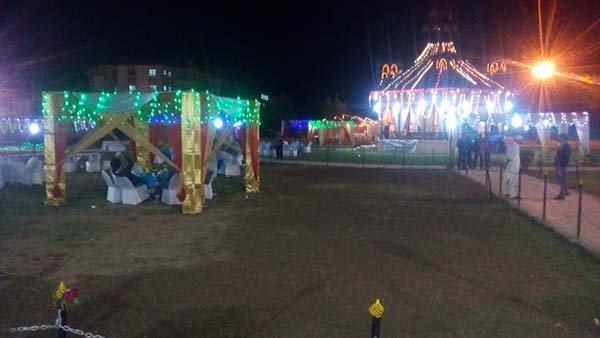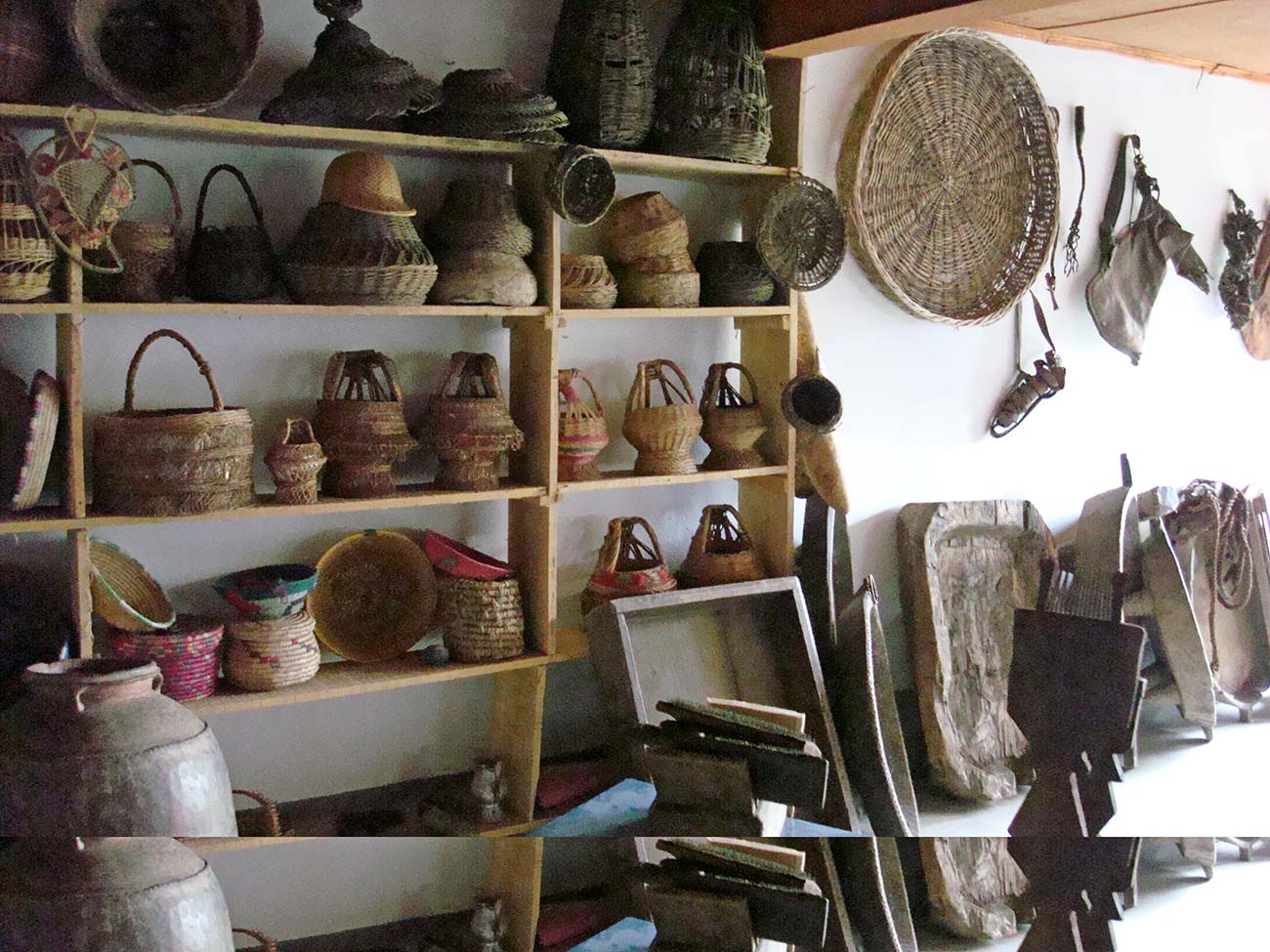It was happening in the heart of Srinagar yet unlike a typical Srinagar evening. Shakir Mir wraps up the month long festivity that Kashmir witnessed this Ramzan
 The first of its kind post-dusk food carnival aimed at reviving the night life in Kashmir during Ramzan ended on a positive note last week as the organizers registered a brisk footfall. The festival was the brainchild of Dr Haseeb Drabu, State Minister of Culture who sought to restore the culture of the nightlife that existed in Kashmir before the political turbulence hit state during 90’s.
The first of its kind post-dusk food carnival aimed at reviving the night life in Kashmir during Ramzan ended on a positive note last week as the organizers registered a brisk footfall. The festival was the brainchild of Dr Haseeb Drabu, State Minister of Culture who sought to restore the culture of the nightlife that existed in Kashmir before the political turbulence hit state during 90’s.
Before militancy, valley had a robust night life where people stayed out till late night, cine-goers booked late night movie tickets and Jhelum banks remained abuzz with activity. But due to two decade long political unrest, the culture was slowly dissipated.
Now the government seems to have pulled up its sleeves to resurrect the tradition in the month of Ramazan which turned opportune for it. Ten renowned food outlets from across India were specially roped in to draw people in huge numbers. Food stalls of the likes of Karim’s and Khan Chacha were erected at Kashmir Haat in Srinagar city with an aim to entice visitors with a range of delicacies like Badam Pasanda, Tandoori Bakra, Biryani and Kheema.
The event was organized by the State Culture Ministry in collaboration with Srinagar Municipal Corporation to give Ramazan a dash of festivity in Kashmir that otherwise remained scarred by violence of over two decades. The nightlong food joints were also erected outside major shrines like Dastgeer Sahib, Khankah Moula and Hazratbal, where devotees thronged till midnight during the holy month. “The purpose was to evoke a convivial mood throughout the night so that people who faced violence all these years can relive the times when the state used to be trouble-free,” said Zahoor Shah, one of the organisers from the state.
The festival was primarily conceived to encourage post-dusk activity in the holy month of Ramazan when people are permitted to eat from Iftaar to Sehri. “Nearly two lakh people visited the Haat during the month of Ramazan,” Zahoor told Kashmir Life. “We got an impressive response where people, cutting across the political divide came to this place. There were people from Hurriyat, government, JKLF. You name it!”
The carnival was a no profit no loss event where every big names, from mainstream leaders to separatist stalwarts, paid a visit. The festival also catered to families who thronged to the Haat after daylong fasting to enjoy and make outing. “We wanted to offer people an essence of Ramazan,” an official from the ministry said. The stall owners were specifically asked by the Ministry of Culture to charge minimally on the delicacies they offered. The price at which they sold the food here was cheaper than the price at which they sell in India. “They enthusiasm was so much that they told us that even if we make no profit, we would still sell the food,” he said.
To enthral the audience at the Haat, a rendition of Naat (devotional religions songs) was also organized by Loud Beetle, who co-managed the event. The sonorous rendition played on the tape while visitors enjoyed mouth-watering food amid convivial ambience. “We had some 3000 people coming daily to the Haat. It was a massive event where people from every walk of life spoke to each other over delicious food,” said Ahmer Khan of Loud Beetle.
The event also threw up opportunity for many local food start-ups to compete with the big Indian names. Javed Parsa of Kathi Junction said that during Ramazan the footfall at his restaurant ebbed but opening up a stall at Haat resulted in impressive profit. “I have never seen Ramazan being celebrated with this gaiety and fervour anywhere in India. The rush of people was unimaginable. I came here every day from 7:30 PM to 10:00 PM and never missed a single day.”
The festival has become a subject of raving reviews among people especially younger generation who have normally hesitated to venture out by evening in view of political turmoil. “The event was a sort of departure from usual,” said Shabir, a student and avid political observer.















